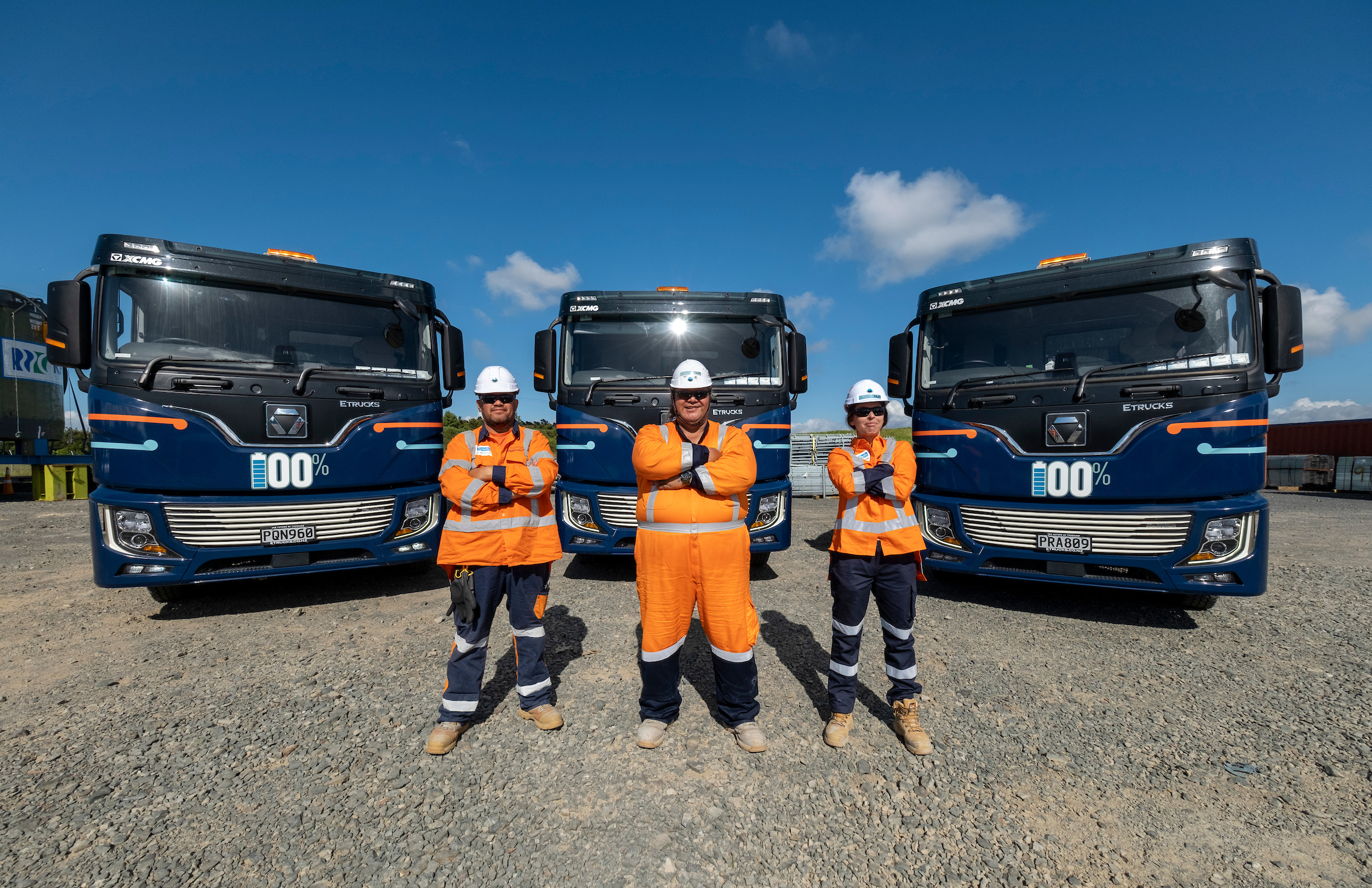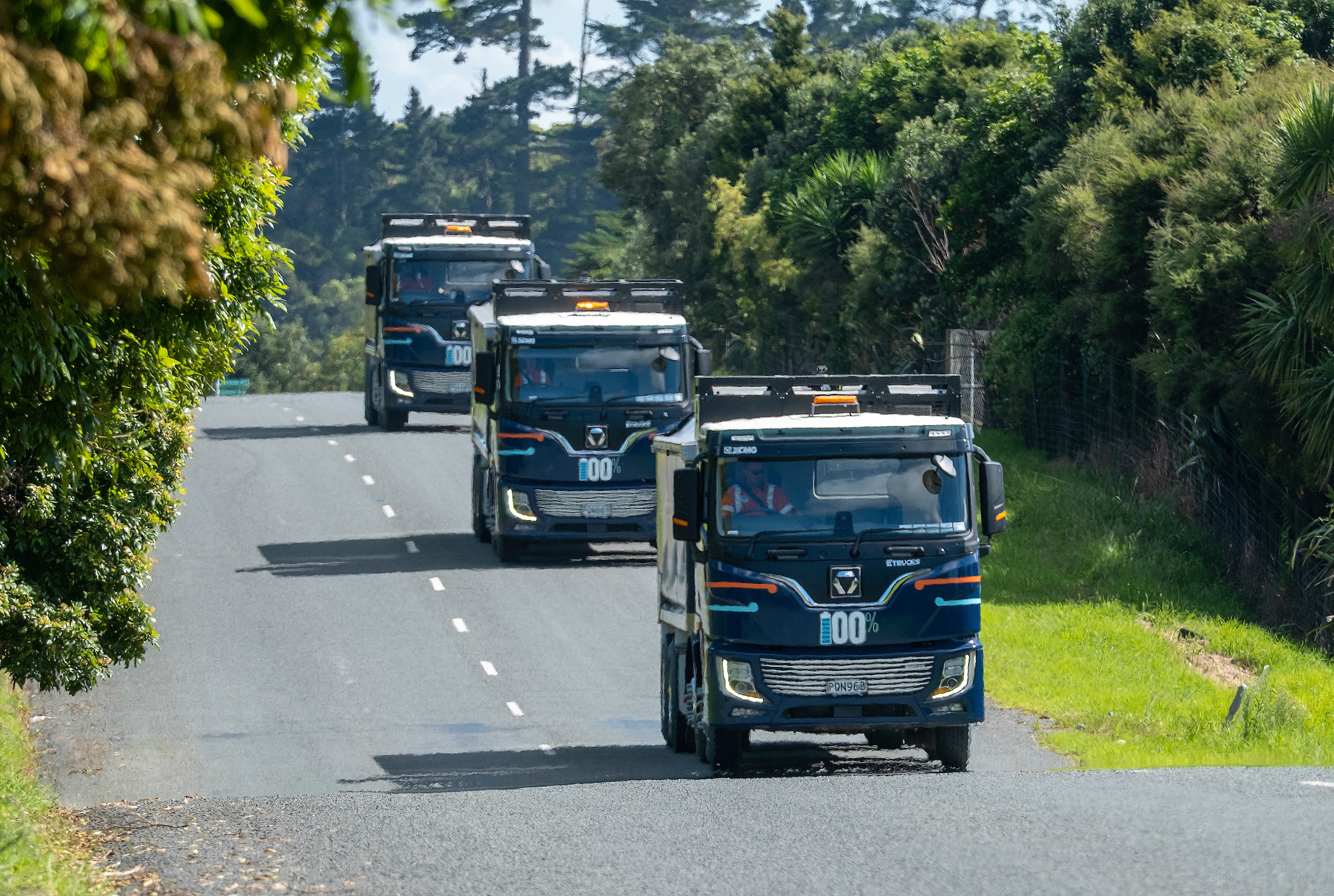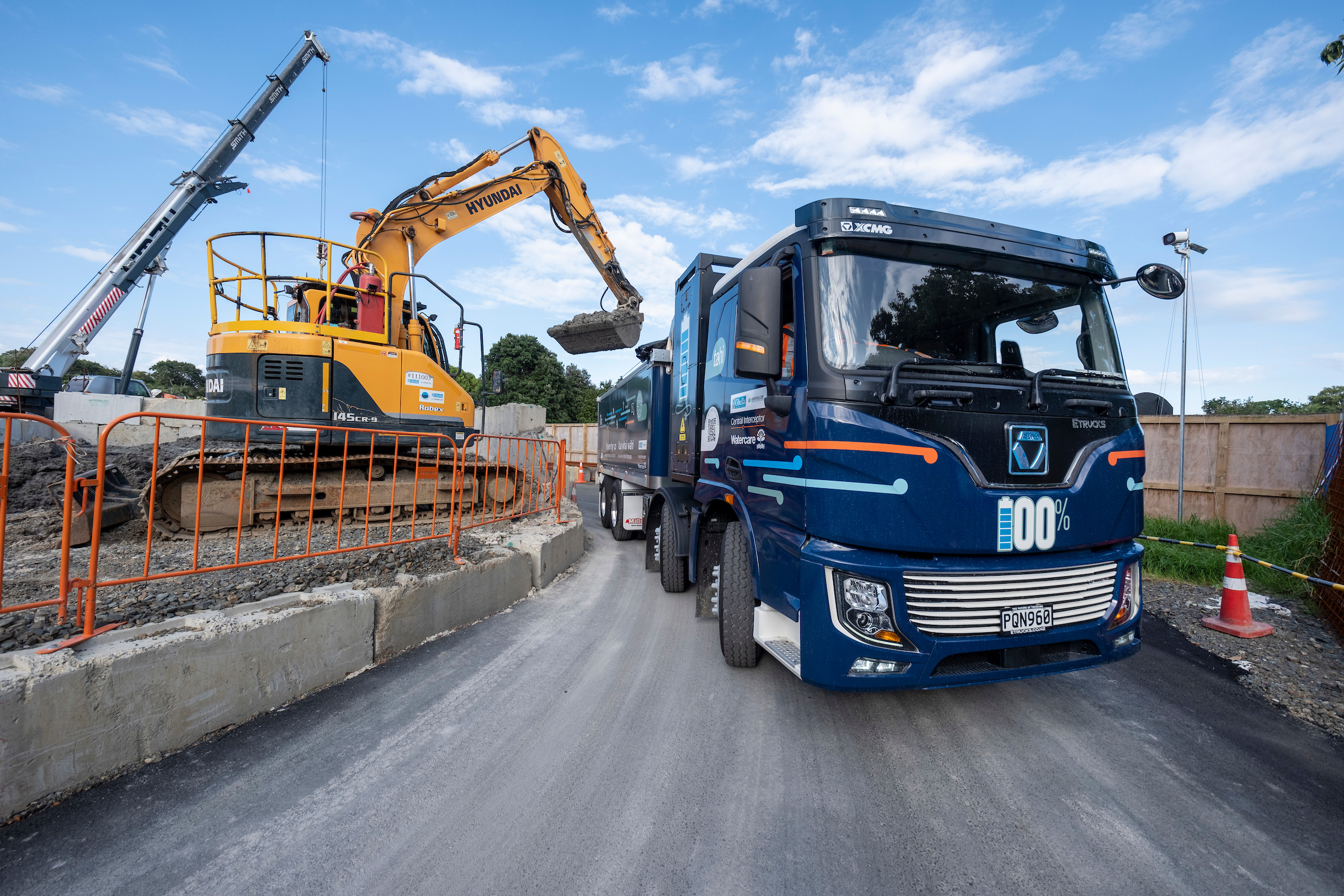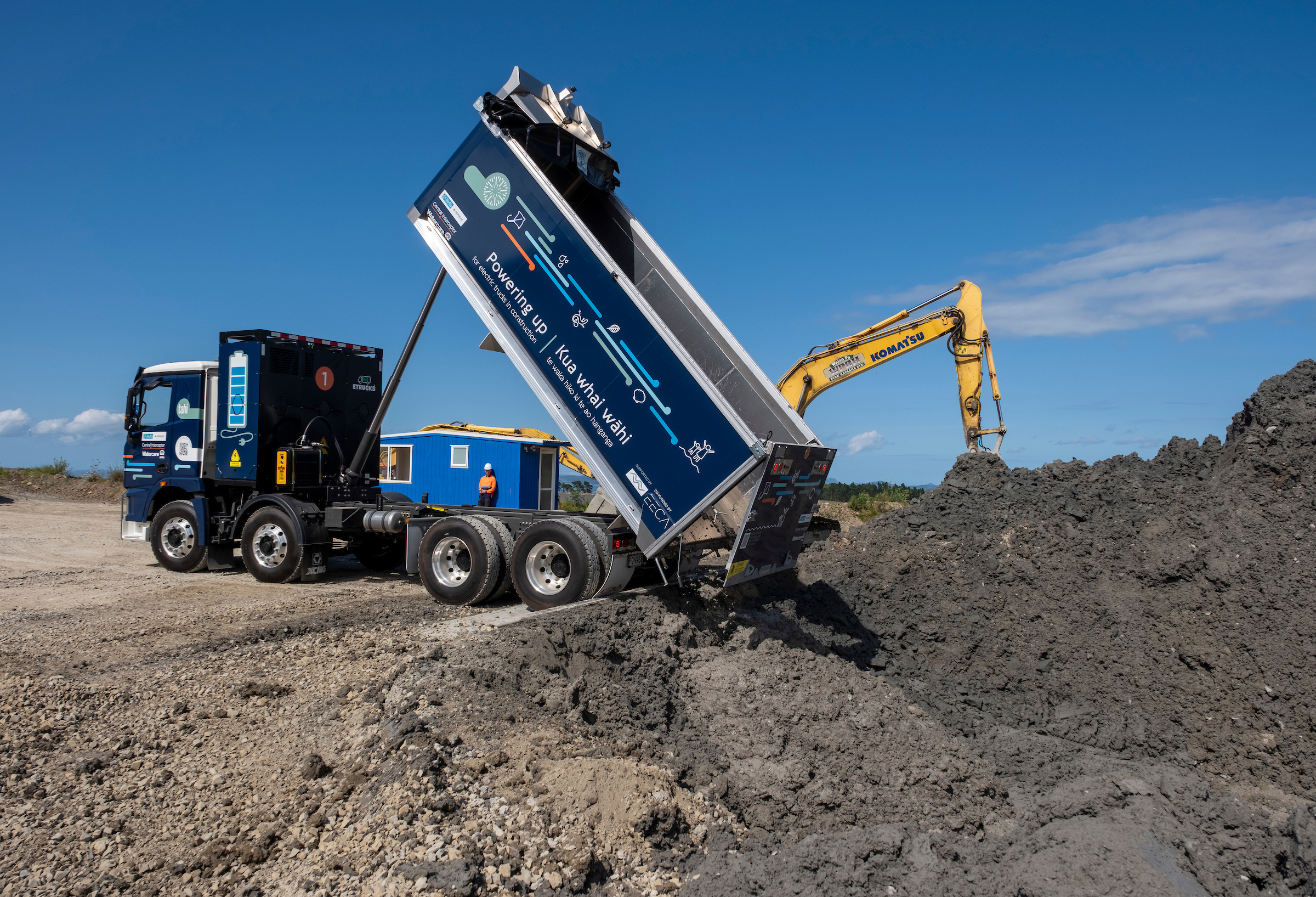Going Electric: Central Interceptor’s Fleet of Electric Trucks Receive Remarkable Results 6 Months in to Operation
11-29-2023
Electrification is a key lever in Ghella’s ESG Strategy, particularly in countries where the share of renewables in the grid is high, making the shift from technologies and services that run on fossil fuels to ones that run on electricity particularly effective in carbon reduction terms.
In Auckland, New Zealand, Watercare's Central Interceptor project has taken a significant leap towards enhancing sustainability in the construction industry. In a groundbreaking move, the waste-water project introduced three on-road electric tipper trucks, setting a new benchmark for eco-friendly construction practices in New Zealand.
The electric trucks, feature eye-catching branding, designed in consultation with Māori (indigenous New Zealanders) include graphics of ancient shells and a stingray, after a tooth and other three- to four-million-year-old artefacts were discovered during early site excavation. The e-trucks have been actively involved in transporting excavated material from tunnel and shaft sites to Puketutu Island and will continue to serve this purpose for the duration of the project.
Each electric truck can transport up to 13 tonnes of material and travel a remarkable 200km’s on a single charge. By eliminating the need for diesel, they reduce CO2 emissions by an impressive 79% —bringing a substantial reduction in environmental impact. The vehicle's battery takes just 90 minutes to recharge and can be quickly swapped in approximately 10 minutes, ensuring minimal downtime during operations.
Notably, these electric trucks offer a nearly silent operation, making them considerate neighbours to communities living near the 16 construction sites.
The fleet of electric trucks have been operational for almost a year, with impressive results:
- Collectively, the three electric trucks have hauled almost 27,000 tonnes of spoil material.
- They have covered nearly 70,000km’s, with a monthly record of 13,000km’s.
- A saving of 50,000 litres of diesel for every 100,000km’s travelled.
- The trucks have met and exceeded the target operational efficiency, reflecting their superior performance.
- An impressive 83 tonnes of carbon emissions have been saved, surpassing expectations by nearly 40%. This equates to almost 28% of the overall initiative's expectations.
These electric trucks represent a significant step forward in reducing carbon emissions in construction. Other benefits include fewer particulates going into the atmosphere, lower maintenance requirements of electric engines and a better air quality in the underground working environment through emission reduction from combustible engines in the tunnels.






